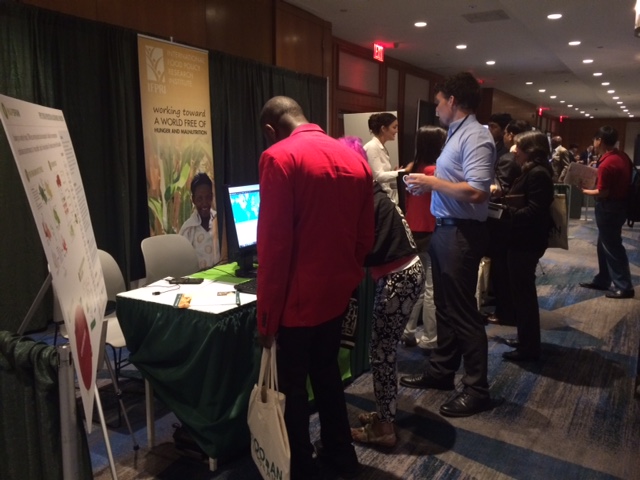Effective policies to fight malnutrition around the world depend on access to accurate data. At the Global Open Data for Agriculture & Nutrition (GODAN) Summit September 15-16 in New York, IFPRI staffers offered prescriptions for gathering and sharing the growing amounts of available information.
IFPRI Director General Shenggen Fan focused on ways to improve data quality and monitoring in a panel titled “Using data to improve nutrition policy programming and accountability,” chaired by USDA Chief Scientist Catherine Woteki. His suggestions included: revamping food security and nutrition information architecture; building country capacity; and establishing advisory groups to develop appropriate measures and methodology.
In another panel—“Communicating Open Data for Agriculture and Nutrition”—data curator Nilam Prasai reflected on IFPRI’s experiences on making data talk. Data presentations should target specific audiences with tailored messages, she said; a single approach may not reach everyone intended.
IFPRI also exhibited its own open data websites, portals, and applications, aimed at decision-makers in agriculture, nutrition, climate change, science and technology, and food security. These include the Data Repository, Food Security Portal, Agriculture Science and Technology Indicators (ASTI), Regional Strategic Analysis and Knowledge Support System (ReSAKSS), HarvestChoice, and the Spatial Production Allocation Model.
GODAN, formed in 2013, brings together world leaders, researchers, farmers, students, and others to collaborate on making agriculture and nutrition data open and available for better policy- and decision-making, with the aim of speeding the elimination of world hunger. IFPRI is among 350 GODAN partners worldwide, which include governments, NGOs, and private sector organizations.
Open data is at the core of IFPRI’s vision of a world free of hunger and malnutrition, as well as its mission to provide research-based policy solutions for developing countries. IFPRI has been sharing data publicly online since the early 1990s, and we plan to continue to strengthen our data collaborations with other organizations.
Related Blog: Open-access data: A key to sound agricultural policies and investments
Email IFPRI-Data@cgiar.org for more information on our data initiatives.
Nilam Prasai is a Data Curator and Indira Yerramareddy a Senior Information & Knowledge Management Specialist at IFPRI.







